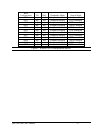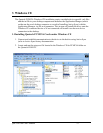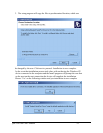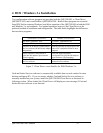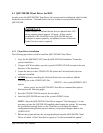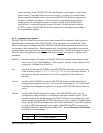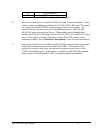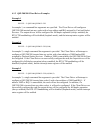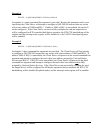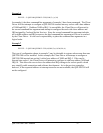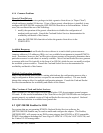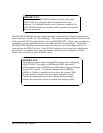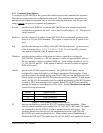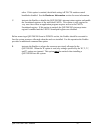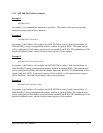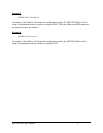
Example 4
DEVICE = C:\QSP-200\QSP200CL.SYS (i5,h,u,b300,o2)
In example 4, a single command line argument is provided. Because the parameter order is not
significant, the Client Driver will attempt to configure a QSP-200/300 inserted into any socket
with a base address of 300H and IRQ 5. If address 300H or IRQ 5 is unavailable, the card will
not be configured. If the Client Driver can successfully configure the card, the output drivers
will be configured for RTS controlled half duplex operation, the RTS-CTS handshaking will be
enabled, and the interrupt status register will be disabled (i.e. the UARTs' Scratchpad registers
will be enabled).
Example 5
DEVICE = C:\QSP-200\QSP200CL.SYS (b300,i5) (i10) ( )
In example 5, three command line arguments are provided. The Client Driver will first attempt
to configure a QSP-200/300 inserted into any socket with a base address of 300H and IRQ 5. If
address 300H or IRQ 5 is unavailable, the Client Driver will proceed to the second command line
argument and attempt to configure the card with a base address assigned by Card and Socket
Services and IRQ 10. If IRQ 10 is also unavailable, the Client Driver will proceed to the third
command line argument and attempt to configure the card with a base address and an IRQ
assigned by Card and Socket Services. If the Client Driver can successfully configure the card,
the output drivers will be configured for full duplex operation (always enabled), the RTS-CTS
handshaking will be disabled (loopback mode), and the interrupt status register will be enabled.
QSP-200/300 User's Manual 20



